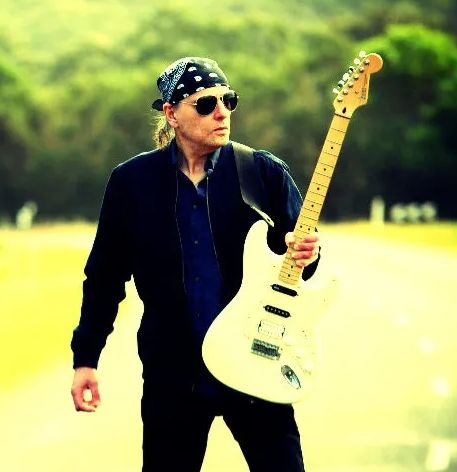Beabadoobee talks alternate tunings, “weird, strange” recording techniques, and the subconscious influence of ‘90s grunge and alt-rock
The self-taught Gen Z guitar hero returns with the brilliant sophomore album, Beatopia, and explains how fresh tunings spring forth fresh musical ideas

After being handed a secondhand guitar from her dad when she was 17, British indie rocker beabadoobee (born Beatrice Laus) has been on an upward trajectory.
Coffee literally the first song she ever wrote, went viral and lifted Laus from bedroom strummer to Gen Z guitar hero. A succession of EPs soon followed, and her debut album, Fake It Flowers, appeared in 2020. Along the way, she’s racked up live performances at Coachella, Jimmy Kimmel Live, the 2020 Rising Star Session at Abbey Road and more.
Her sophomore effort, Beatopia, sees the 21-year-old Laus throwing out the rule book and delving into psychedelia, emo, fuzzy rock and pop. “I just felt like there were no more rules. I wanted to do everything I could,” she says. “We just wanted – depending on the song – to capture the vibe of what we were trying to create with the way the guitar sounded. So I explored a lot of weird, strange ways of recording the music.”
We have a very big guitar rig. It’s a hard job for the guitar tech
Much of Laus’ sonic palette is heavily infused with the spirit of Nineties grunge. “It’s part of my vocabulary,” she says. “It’s within my world and personality, and it almost threads its way into my music without me even realizing. It’s subconscious because I listened to so many bands from that era. Especially with Fake It Flowers, I was listening to a lot of My Bloody Valentine – and it just kind of happened.”
Teaching herself guitar from YouTube videos – with a playlist rich in My Bloody Valentine, Sonic Youth and Elliot Smith – led her to experiment with alternate tunings.
“We’ve been trying to limit the amount of guitar changes on stage – because I have too much,” she says. “But with some songs, you really can’t duplicate the sound because of how open the strings are.
“There’s such a specific sound with tunings, so you need another guitar for that specific tuning. It will change the whole song, essentially, if I play in standard when it’s supposed to be in some weird emo tuning I found on YouTube… We have a very big guitar rig. It’s a hard job for the guitar tech.”
Get The Pick Newsletter
All the latest guitar news, interviews, lessons, reviews, deals and more, direct to your inbox!
Laus firmly believes it’s these unique tunings that underpin her songs. “It isn’t necessarily the right way of playing,” she says, “but, what I find is, because I’m not a very strong guitar player, I’ll tune my guitar to a lot of tunings, and it helps create a really pretty sound. So most of the songs on this record are in different tunings.”
Unlike her tunings, however, Laus plays it straight – as in pretty much straight into the guitar amp. “I play through a Marshall and don’t have many effects… My guitarist, Jacob [Bugden], has all the crazy, crazy, crazy, pedals, but I like to keep mine plain and simple.”
- Beatopia is out now via Dirty Hit.
Joe Matera is an Australian guitarist and music journalist who has spent the past two decades interviewing a who's who of the rock and metal world and written for Guitar World, Total Guitar, Rolling Stone, Goldmine, Sound On Sound, Classic Rock, Metal Hammer and many others. He is also a recording and performing musician and solo artist who has toured Europe on a regular basis and released several well-received albums including instrumental guitar rock outings through various European labels. Roxy Music's Phil Manzanera has called him, "... a great guitarist who knows what an electric guitar should sound like and plays a fluid pleasing style of rock." He's the author of Backstage Pass: The Grit and the Glamour.
“There’d been three-minute solos, which were just ridiculous – and knackering to play live!” Stoner-doom merchants Sergeant Thunderhoof may have toned down the self-indulgence, but their 10-minute epics still get medieval on your eardrums
“There’s a slight latency in there. You can’t be super-accurate”: Yngwie Malmsteen names the guitar picks that don’t work for shred

![A black-and-white action shot of Sergeant Thunderhoof perform live: [from left] Mark Sayer, Dan Flitcroft, Jim Camp and Josh Gallop](https://cdn.mos.cms.futurecdn.net/am3UhJbsxAE239XRRZ8zC8.jpg)








